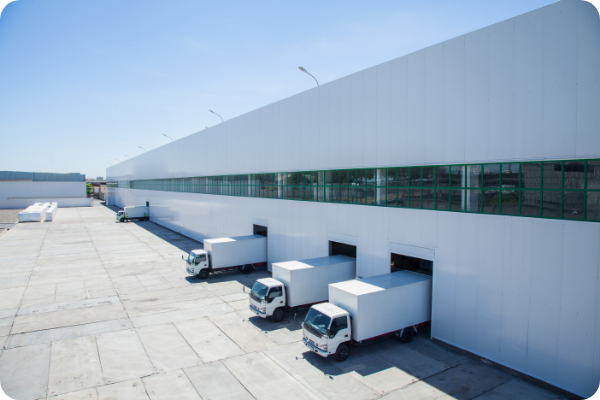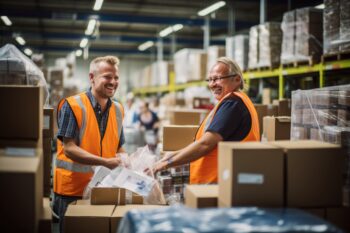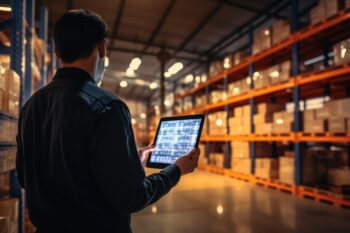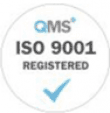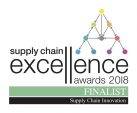Successful retailers have found that a big part of the answer to Internet retail challenges lies in the adoption of technology. Could blockchain be one of those technologies? Gavin Parnell, director at The Supply Chain Consulting Group, looks at the role it can play.
Blockchain is being mooted as the next big thing for supply chains. Internet retail is an interesting area where Its potential to speed up administrative processes and to take costs out of the system while still guaranteeing the security of transactions will have a positive impact.
Retail has transformed over the last decade, with the development of omni-channel operations to serve increasingly demanding and techno-savvy customers. As the market continues to re-shape, retailers, wholesalers, and other service providers must keep pace with the e-commerce business environment.
A significant change in this environment is customers increasingly shopping on the move via their smartphones. As they become more comfortable with this technology they switch from merely using smartphones for shopping research and price comparison, to actually clicking ‘buy’ and making the transaction.
A big factor underpinning growth of mobile-commerce will be consumer trust in privacy and the ability to protect personal information online. Blockchain can strengthen trust in transactions over the Internet.

A shared ledger rather than individual statements gives a single ‘true’ record of a transaction. The underlying principle of blockchain is to provide a secure environment where encrypted business transactions between buyer and seller can happen without the need for third parties to intervene. Blockchain is essentially a trustworthy digital ledger that nobody can change, but anybody in a system can update.
The distributed system operates over a network via the Internet. Individuals in the network keep copies of the blockchain on their personal computers and move the information on digitally by validating the transaction. All the participants with a copy agree the state of the block chain at any given time. It is this consensus and the use of cryptography (storing and transmitting data in a particular form so that only those for whom it is intended can read and process it) that ensures records can’t be counterfeited or altered, giving blockchain its high security.
Hackers would not only need to hack into a specific block to alter existing information but would have to access all of the preceding blocks going back through the entire history of that blockchain, across every ledger in the network, simultaneously.
And with no central organisation owning the system it is difficult to corrupt and everybody can use it and help run it. In retail, blockchain’s inherent security can guard against counterfeit pharma, luxury and electronic goods – with the blockchain ledger acting as certification.
A permanent audit trail of every product movement or financial transaction, from its source to ultimate destination, can reduce opportunities for fraud. The trust engendered through blockchain will give consumers the confidence to buy from smaller and specialised e-tailers or ‘small ad’ platforms with the same confidence as buying through one of the online giants. This recording within the digital ledger also means that stolen merchandise can be located, while the technology also reduces the likelihood of fraudulent and counterfeit items making it to market.
Blockchain can play a key role in supporting ecommerce supply chains in a number of ways. The technology can help ensure online stock availability by improving the supply chain. By enabling faster and more accurate tracking of products and distribution assets – for example containers, as they move through the supply chain – it can a reduce errors on orders, goods receipts, invoices and other trade related documents due to less need for manual reconciliation. Information about process improvements and maintenance can be shared in realtime.
Online grocery retailers can harness blockchain technology to generate transparency and efficiency in supply chain record-keeping, with the aim of enhanced food safety. With blockchain, food products can be digitally tracked from source to suppliers and ultimately to consumers.
The information captured in each transaction is agreed upon by all members of the business network; once there is a consensus, it becomes a permanent record that can’t be altered. This helps to ensure that all information about the item is accurate. The record created by the blockchain can also help retailers better manage the shelf-life of products in individual warehouses, and further strengthen safeguards related to food authenticity.
Transparency of goods from origin to supply chain is increasing in importance for consumers. Shoppers want to know where their products are sourced from for ethical or quality reasons. Providing the ‘story’ of a product, from source to the customer, could also be used for marketing purposes. In an increasingly competitive global retail environment, retailers have no choice but to adapt to the brave new e-commerce world.

